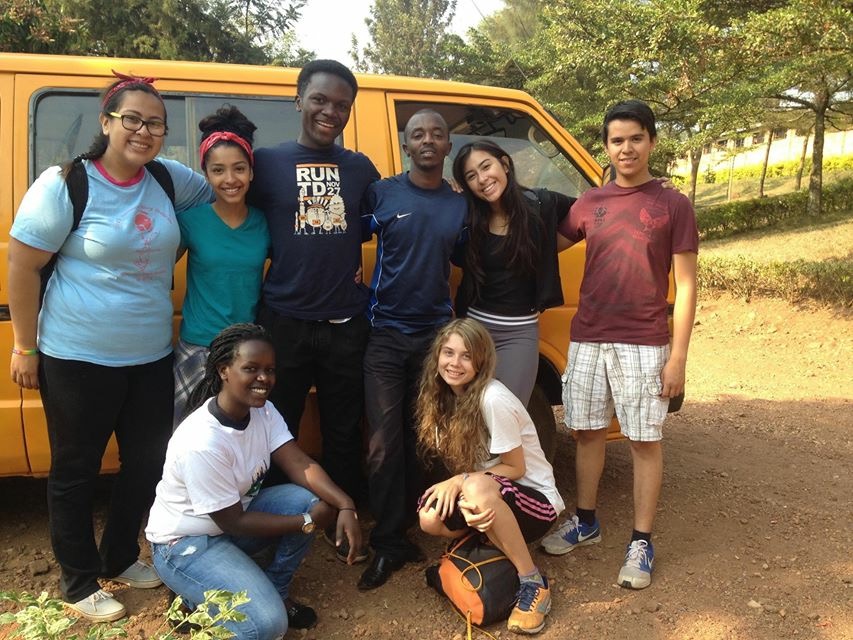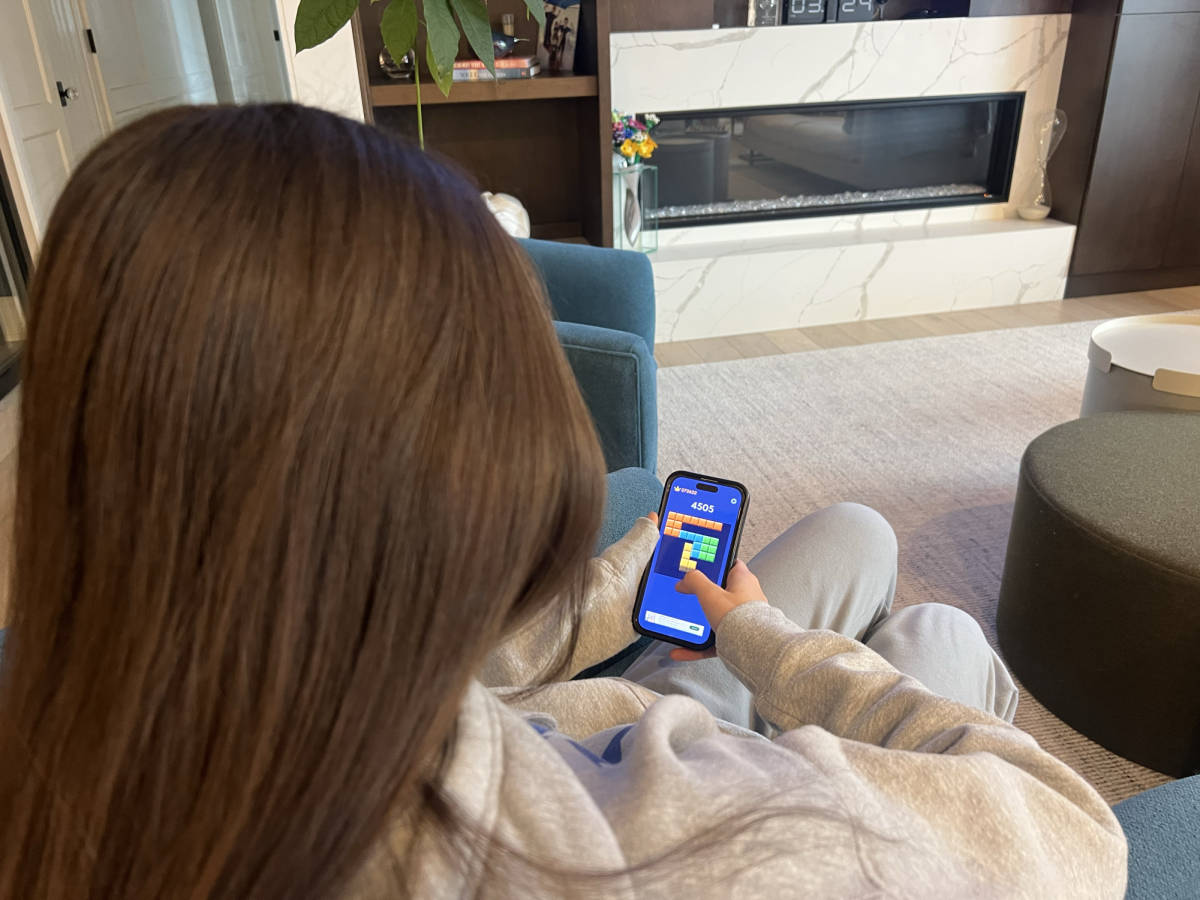Before going to Rwanda, we learned a brief history of what happened in the country. Since the colonization of Rwanda, the Rwandese people were split up into three ethnic groups: the Hutu, the Tutsi, and the Twa. In 1994, conflicts between the Hutus and Tutsis sparked into complete genocide and over the period of 100 days, over a million people were murdered. During the genocide, known HIV positive men raped Tutsi women to hinder the Tutsi generations to come. Women’s Equity to Care and Treatment, also known as WE-ACT, was launched in 2003, when a group of frontline AIDS physicians, activists and researchers responded to an urgent global appeal from Rwandan genocide survivors. WE-ACT runs a summer camp every summer for their patients, ranging from the ages of 6 to 18, and gives the campers a chance to build trust with their mentors who will meet with them at least once a week for the rest of the year and partake in activities with other kids who have similar backgrounds as them. Latin in Rwanda’s job is to go to Rwanda and help make the camp as successful as it can be. We were tasked with things like bringing sports equipment, first aid supplies, art supplies, laptops, and willingness to play with the kids and help foster the relationships between the mentors and campers. I signed up for Latin in Rwanda because it seemed like it was fate. Service trips were nothing new in my household. When my sister went to college, she traveled to places like the Dominican Republic, Nicaragua, and El Salvador with service groups to build schools and help fix up churches. After she graduated college in 2010, she joined the Jesuit Volunteer Corps and was sent to Chile, where for two years she taught English at a high school during the week and during the weekends she taught immigrant women their rights at a local church. She lived in a house with 3 other volunteers and had a weekly budget of $60. After working at High Jump for six weeks, Rwanda seemed destined for me. For those who do not know what High Jump is, it is a program for gifted 7th and 8th graders to prepare them for applying to competitive high schools and betters their chances of being accepted. I am a product of High Jump. I enjoyed working with the kids and I thought working with High Jump would be a good prep for going to Rwanda because it would provide me with social skills to work with kids younger than me and give me ideas of activities to do with the kids in Rwanda. Rwanda was everything and nothing I expected at the same time. This oxymoron is the only way I can describe a country like Rwanda. Let me try to explain what I mean. For example, going to a place where genocide happened, we were expected to visit memorials and meet survivors. We visited the Kigali Genocide Memorial Centre, which reminded me of a Holocaust Museum. It was very solemn and dedicated to the memory of those who lost their lives due to ethnic cleansing. What I didn’t expect was going to a site where a massacre took place. It was a church in a suburb of Kigali known as Nyamata. At this particular church, Tutsi people took refuge during the genocide in hope that the sanctity of the building would protect them from the brutality of the Hutu extremist. They were wrong. The Hutu militia forced themselves into the church using grenades and slaughtered every single person inside. The site remains as a memorial to the estimated 10,000 victims who were murdered in and near the church. The church’s basement has been converted into three mass graves that house over 50,000 skeletons of the victims of the genocide. You are able to walk into the mass graves that are stacked floor to ceiling with bones. The accessibility to the bones serves to teach people the ways people were murdered and serves as a way to never let the people of the world forget the genocide. I expected to meet many people that the genocide affected due to how recent it was. I didn’t expect the ways it affected them. The first night we arrived in Rwanda, we met some of the staff of WE-ACT and had dinner with them. We all sat around the dinner table and it was time to make that awkward small talk that accompanies you when you first meet a person. It began with questions like what’s your favorite color and what is one question you wish someone would ask you. The staff we met with wasn’t much older than us. The only Rwandese person who was a bit older than us was our driver, Jean, and he is 37 years old. So their answers were similar to our answers. Then I was asked to think of a question and I asked the table “if you could eat dinner with anyone in the world, dead or alive, who would it be?” I expected answers like Ghandi, Tupac (or another music mogul who died much too early), or famous politicians. Instead I got answers like my mother or my father. It was at that moment I realized how devastating the genocide truly was. I expected saying goodbye to the campers would be simple. After working at High Jump, I realized how easy it would be to become attached to my students. When I had to say my last goodbyes to my High Jumpers, I did become sad and realized how much I would miss them in my endeavors to come. After our first day at the camp, the kids gave us countless hugs and were hopeful to see us the next day. I didn’t expect the emotions I’d feel the day we said our final goodbyes. These goodbyes felt much more permanent. This moment could very well be the last time we ever see these campers in our lives. The goodbyes came with tears, tight hugs, and the hope of being able to return in hope of spending more time with these amazing campers and colleagues. When I returned from Rwanda, it was very strange to be back. Everything seemed different and unknown. After recounting my experience to my sister, she told me I was “ruined for life.” She explained to me that the Jesuit Volunteer Corps warned her before she went to Chile that when she was to return after her work there was done, it’d take time for her to integrate back into American life. Moreover, everything she was to do after her experience would never be the same. From the most miniscule aspect of daily life to life-changing decisions, everything would be seen through a different perspective than she began with. Coming back from Rwanda, I faced the same consequence. I no longer find myself upset about petty issues like I did before I left. I no longer take things, like having parents, for granted. Everything was put into a perspective I’ve never had to look through before. Rwanda has forever left a mark on me, nothing will ever be the same again, and I’m happy with that. Click here to read the blog kept by Michelle Santos (2015), Alexis Lopez (2015), Sumina Regmi (2017), Michelle Perez (2017), Alex Moreno (2017), and Richard Mbouombouo (2017) on the memories have gained from their journey to Rwanda. ]]>
Categories:
How Latin in Rwanda Ruined My Life
September 1, 2015
1




















































